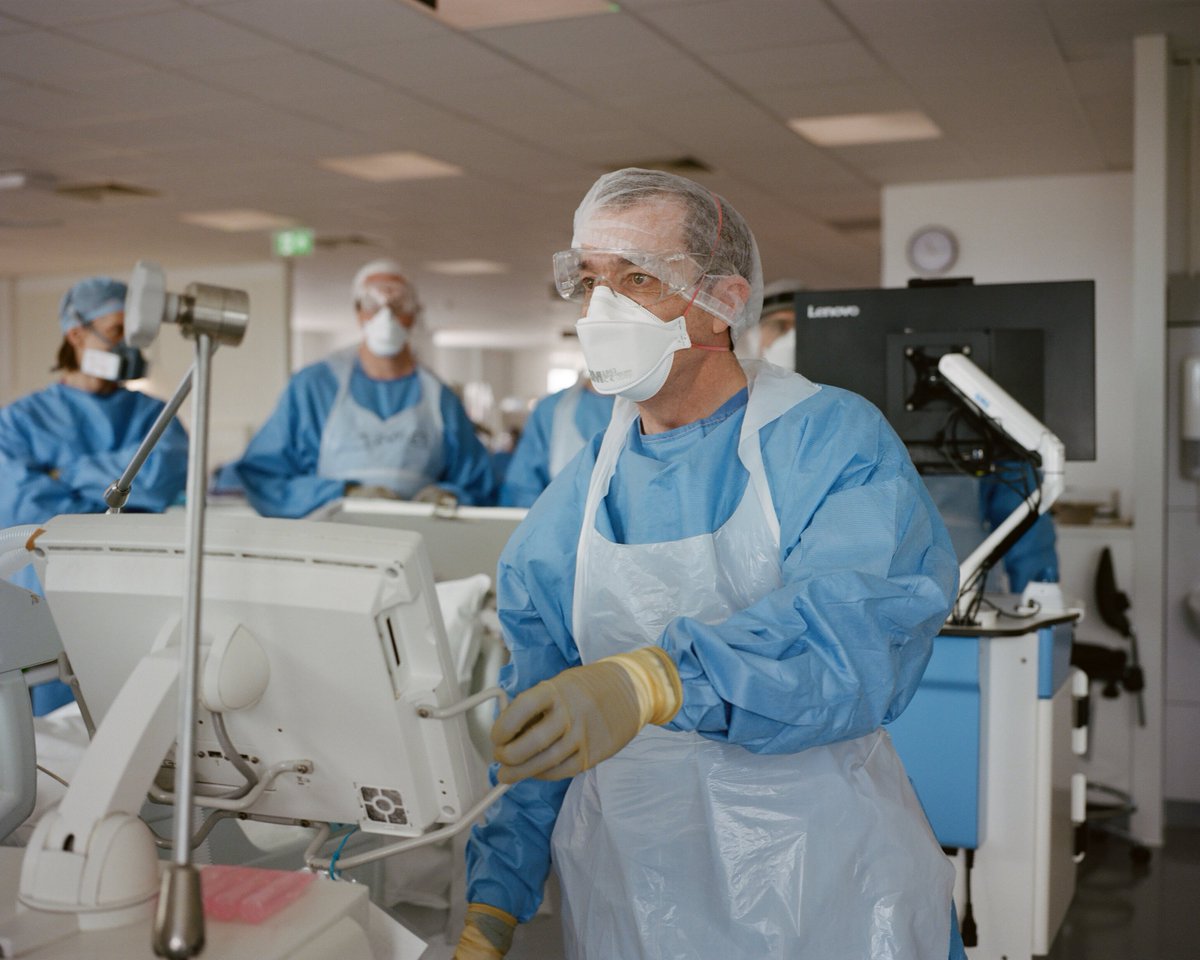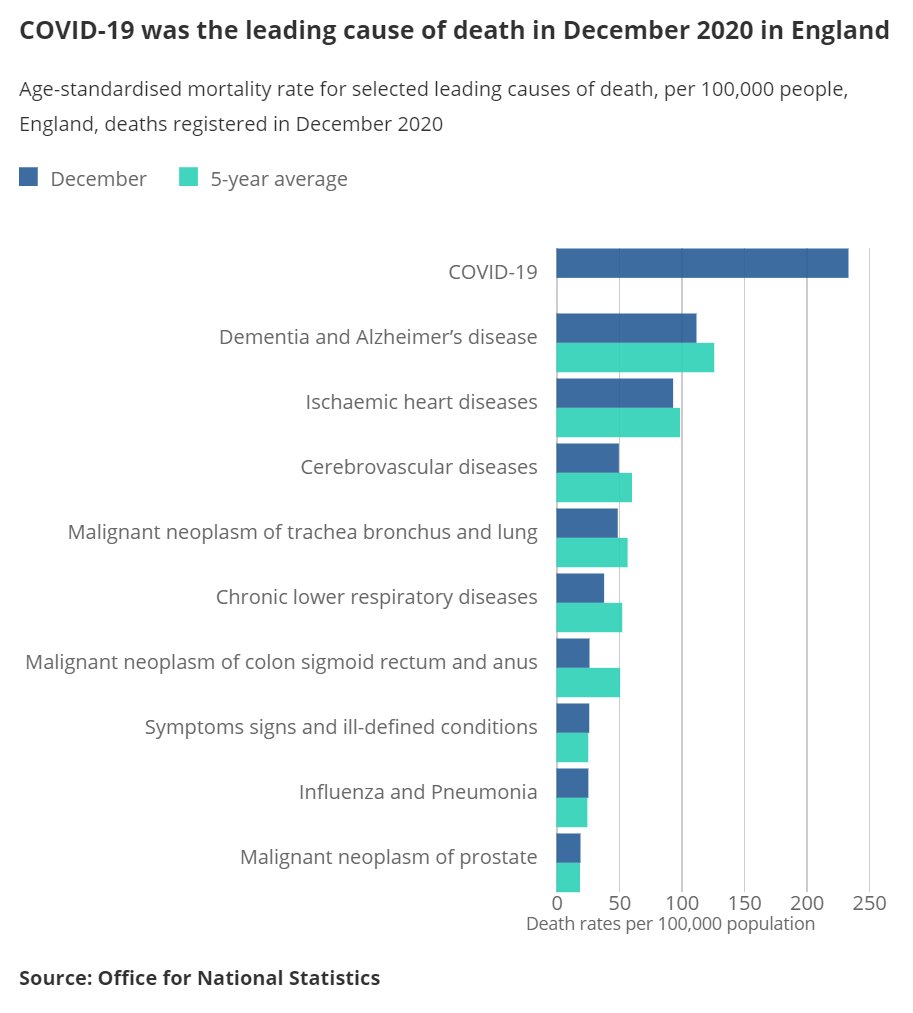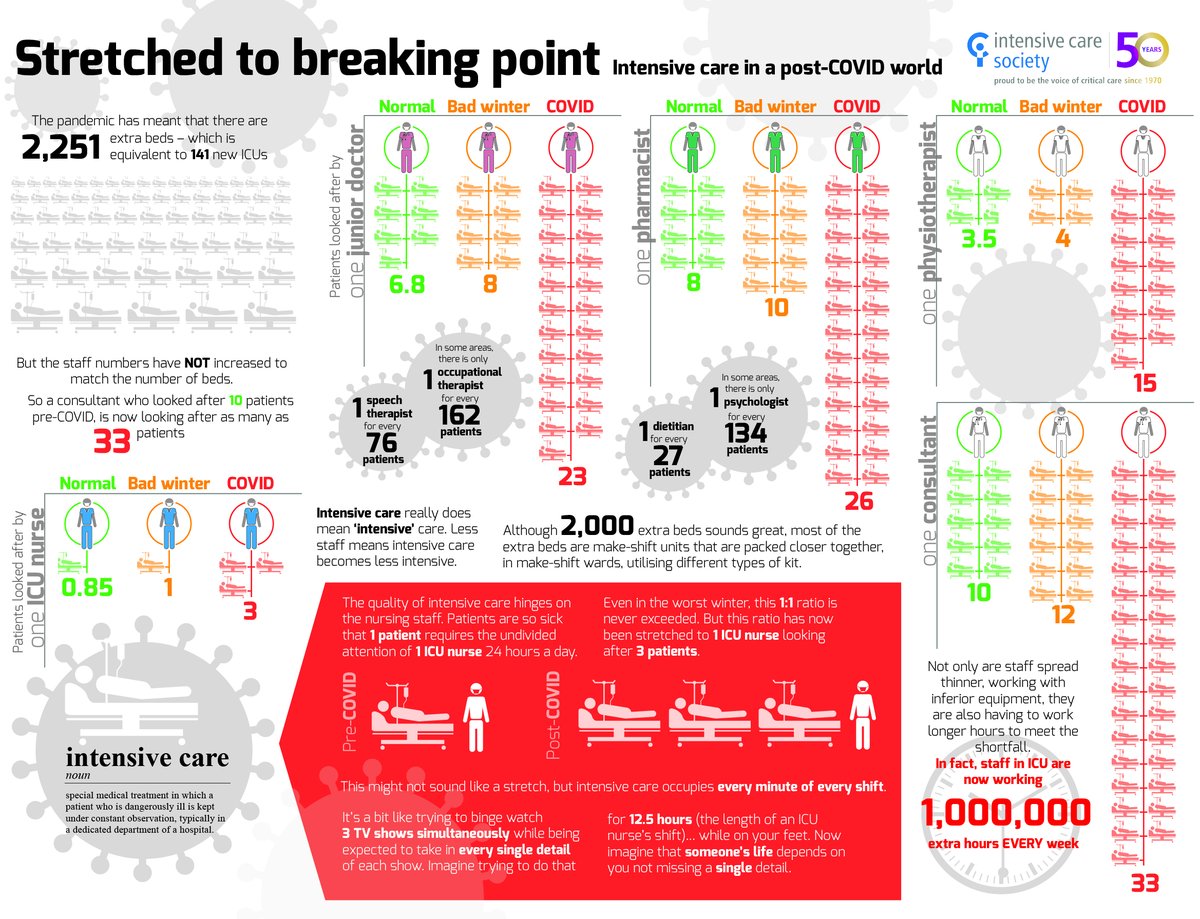
COVID sitrep: The situation in NHS hospitals continues to improve as new infections reach the lowest level since mid-September. Lots of green on the map now. Many patients now well enough to be cared for at home. Still lots going on though. 1/9 

We now have fewer than 10,000 COVID patients in NHS hospitals, and the lowest number since 24th October. A great milestone but still a vast number for a single infectious disease. The NHS is a long way from business as usual. 2/9 

National patterns can often hide regional variations but it’s great to see both hospital admissions and deaths from COVID now falling in every region of England. 3/9 

COVID-19 is by far the leading cause of death so far in 2021 and remains a disease to take very seriously…. 4/9 

….whilst (bizarrely) some still persist in denying the impact of the pandemic, it is clear that the 143,000 COVID deaths so far in the UK represent a huge increase on previous years. People didn't simply die of a different disease. 5/9 
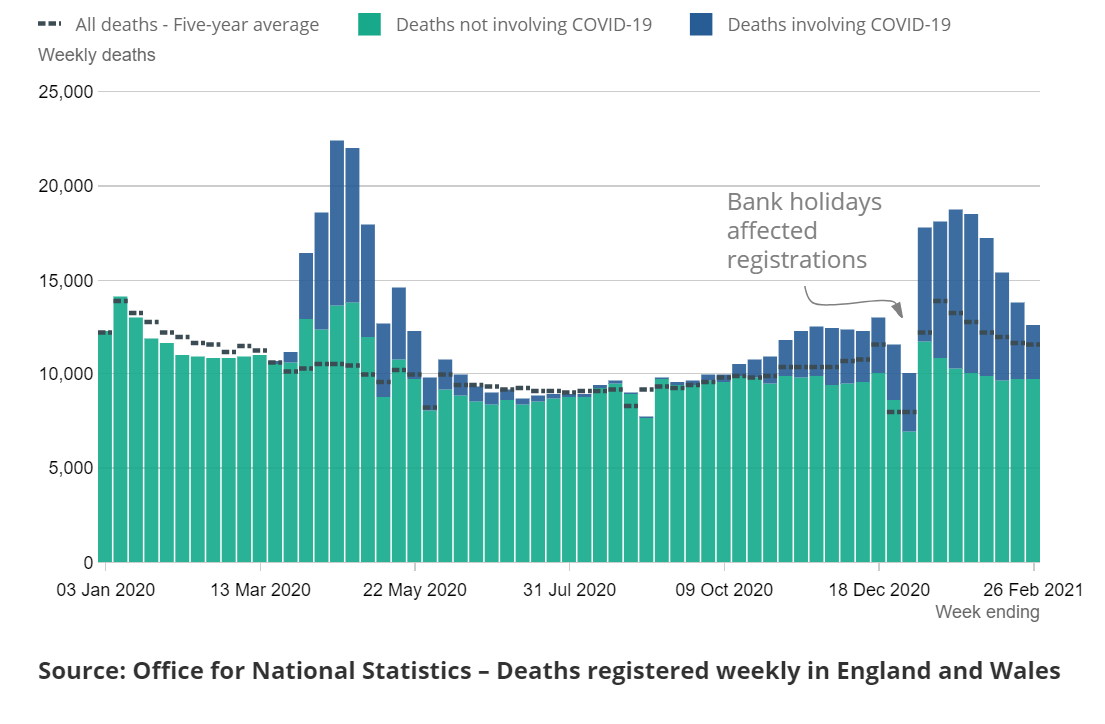
Outcomes for ICU patients are better than the 1st wave but we aren’t sure why. It may simply be that patients have fewer risk factors in the 2nd wave. We do know more about treating COVID but the NHS has also been under huge strain reducing the quality of patient care. 6/9 
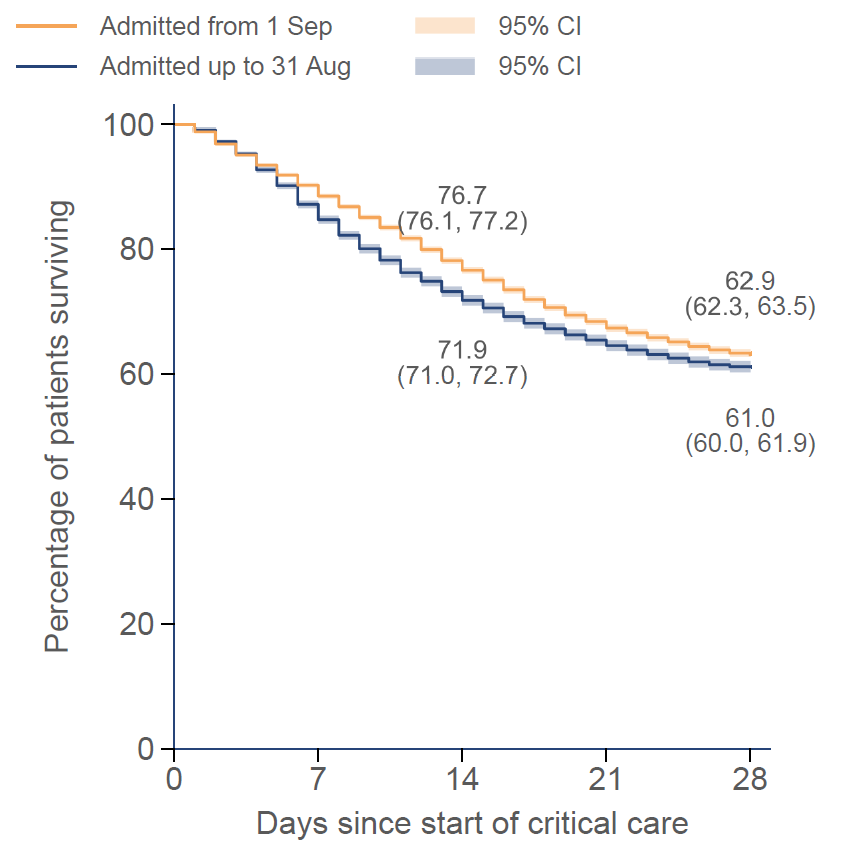
ICU staff in particular, must prepare for a large third wave we can't be sure won't happen. Vaccines may not prevent this. The public understood why patient care was compromised in waves 1 & 2 but future expectations will be much higher. This planning uses a lot of our time. 7/9 
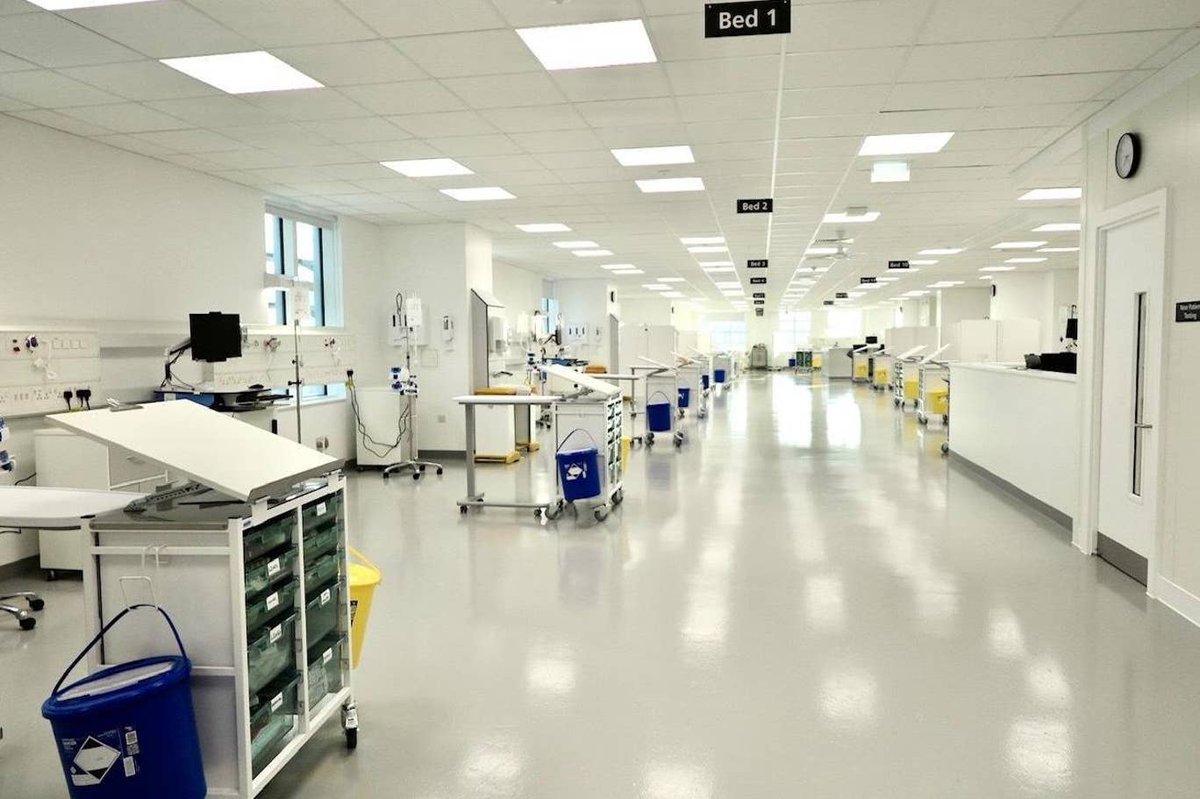
The unrelenting demands of the winter have taken a toll. NHS staff are badly in need of a rest as the second wave subsides and the lockdown relaxes. Announcements about pay haven’t helped. Nursing staff in particular are very upset about this. 8/9
bbc.co.uk/news/uk-politi…
bbc.co.uk/news/uk-politi…
The urgent need to get the NHS back to business as usual is understood by all, but we must work out how to care for our staff and clear the huge backlog of ‘usual’ patient care all while preparing for another major pandemic response. Our situation remains difficult. 9/9 

• • •
Missing some Tweet in this thread? You can try to
force a refresh


